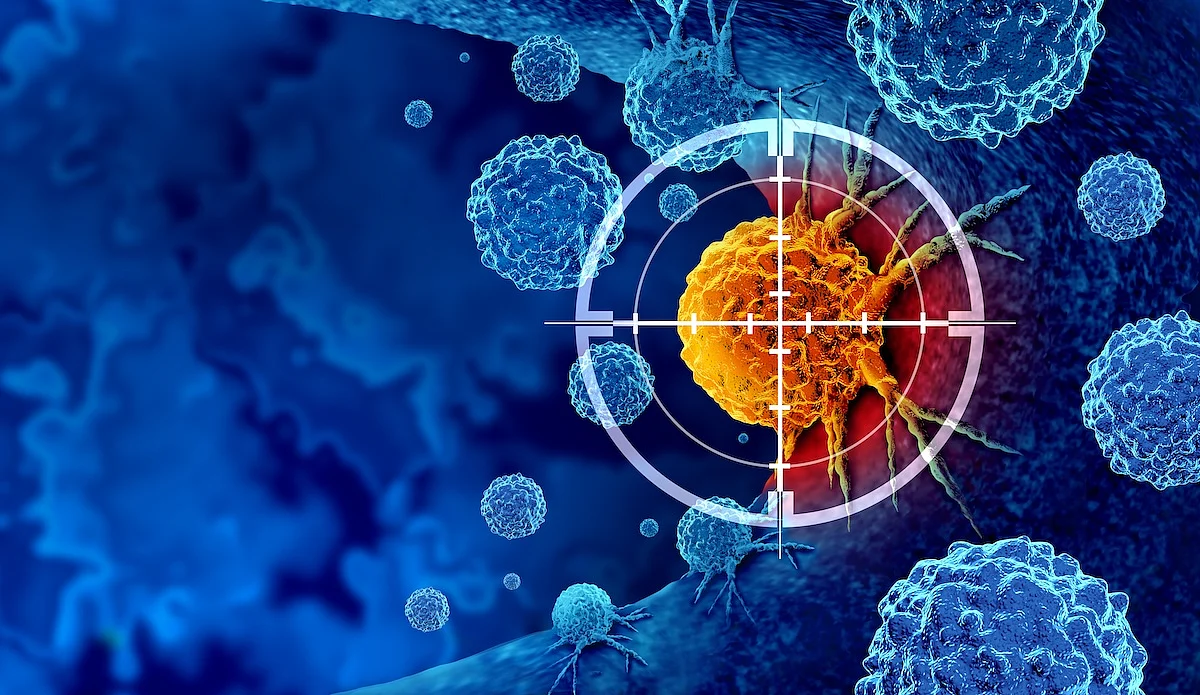Autoantibodies Influence Cancer Response To Immunotherapy, Study Says
MONDAY, July 28, 2025 — Cutting-edge immunotherapy drugs are incredibly effective against some cancers but barely put a dent in others – and researchers might now know why.
Patients’ own autoantibodies – immune proteins traditionally associated with autoimmune diseases like psoriasis and lupus – appear to dramatically influence their individual response to immunotherapies, researchers report in the journal Nature.
“Our analysis shows that certain naturally occurring autoantibodies can tilt the odds dramatically toward shrinking tumors,” senior researcher Dr. Aaron Ring, chair of immunotherapy at Fred Hutchinson Cancer Center in Seattle, said in a news release.
“We saw some cases where autoantibodies boosted a patient’s likelihood of responding to checkpoint blockade by as much as five- to ten-fold,” he said.
The study focused on immune checkpoint inhibitors, drugs that boost the body’s ability to attack on cancer by removing cancer cells’ ability to evade detection by the immune system.
These drugs have transformed treatment for a wide range of cancers, including melanoma and certain types of lung cancer, researchers said in background notes. However, not all patients respond to the medications.
Researchers screened for more than 6,000 types of autoantibodies in blood samples taken from 374 cancer patients receiving checkpoint inhibitors and 131 healthy people.
“For years, autoantibodies were viewed mainly as bad actors in autoimmune disease, but we’re discovering they can also act as potent, built-in therapeutics,” Ring said. “My lab is mapping this hidden pharmacology so we can turn these natural molecules into new treatments for cancer and other illnesses.”
Results showed that cancer patients had substantially higher levels of autoantibodies compared to healthy folks.
Importantly, certain autoantibodies were linked to better outcomes among cancer patients, researchers said.
For example, autoantibodies that blocked an immune signal called interferon were linked to better tumor attacks by checkpoint inhibitors.
This finding mirrors other studies, which have found that too much interferon can exhaust the immune system, limiting the effects of immunotherapy, researchers said.
“In some patients, their immune system essentially brewed its own companion drug,” Ring said. “Their autoantibodies neutralized interferon and that amplified the effect of checkpoint blockade. This finding gives us a clear blueprint for combination therapies that intentionally modulate the interferon pathway for everyone else.”
However, not all autoantibodies helped cancer patients. Several were associated with worse outcomes, likely because they disrupted critical immune system pathways necessary to combat cancer, researchers said.
Finding ways to eliminate or counteract those autoantibodies might improve the effectiveness of immunotherapy in patients who otherwise might not benefit, researchers said.
“This is only the beginning,” Ring said. “We’re now extending the search to other cancers and treatments so we can harness — or bypass — autoantibodies to make immunotherapy work for far more patients.”
Sources
- Fred Hutchinson Cancer Center, news release, July 23, 2025
- Nature, July 23, 2025
Disclaimer: Statistical data in medical articles provide general trends and do not pertain to individuals. Individual factors can vary greatly. Always seek personalized medical advice for individual healthcare decisions.
© 2025 HealthDay. All rights reserved.
Read this next
Premature Immune Aging Might Be Driver Of Rheumatoid Arthritis
WEDNESDAY, Sept. 10, 2025 — Rheumatoid arthritis might be caused in part by a prematurely aging immune system, a new study says. Researchers found that people with joint...
WHO Updates List of Essential Medicines to Include GLP-1s
TUESDAY, Sept. 9, 2025 -- The World Health Organization published updated editions of its Model List of Essential Medicines (EML) and Essential Medicines for Children (EMLc) to...
HHS Withdraws Report Linking Alcohol To Higher Cancer Risks
MONDAY, Sept. 8, 2025 — Federal health officials have withdrawn a government report warning that even small amounts of alcohol could raise the risk of cancer and other...
More news resources
- FDA Medwatch Drug Alerts
- Daily MedNews
- News for Health Professionals
- New Drug Approvals
- New Drug Applications
- Drug Shortages
- Clinical Trial Results
- Generic Drug Approvals
Subscribe to our newsletter
Whatever your topic of interest, subscribe to our newsletters to get the best of Drugs.com in your inbox.


